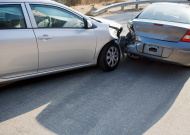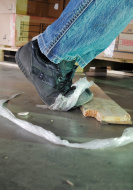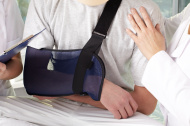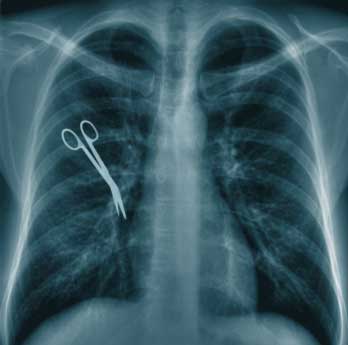Open 7 Days a Week 8:00 AM - 6:00 PM | NY Office (718) 934-8777 | NJ Office (908) 759-0777

In New York State, many different laws come into play when a car accident occurs. In addition to proving “negligence” or fault, a person must also prove with medical evidence that they suffered a “serious injury”. The definition of what a “serious injury” is continues to be litigated in the Courts.
Regardless of who is at fault for a car accident, an injured person may be entitled to coverage for medical expenses and lost earnings up to $50,000. Those rights may be lost unless certain forms are promptly filed with the correct insurance company. Additional benefits may also exist from the car insurance policies of anyone living within the same household as the person injured.
Besides case development, we help our clients in resolving their property damage claims in the beginning of the case so that they can get their car repaired or replaced. We assist our clients in filing for no-fault benefits to pay their lost earnings and medical bills, workers compensation benefits for on the job accidents and social security disability when applicable so that they have a steady stream of income.
When a client has sustained a severe and permanent injury worth a great deal of money, often the best result can only take place in a courtroom. The insurance industry wants to hold on to large settlement monies as long as possible. Our experience and large resources enables us to fast track cases onto the trial calendar, so that our injured clients receive compensation as soon as possible. In New York State, a person must prove two main issues to a judge or a jury in any car or motor vehicle accident claim. It is necessary to prove liability – that the negligent party was at fault. It is not necessary to show that another party was completely at fault.
In New York State, a car accident victim may recover for injuries caused in part by the negligence of another even if the injured person was partially at fault for the accident. It is also necessary to demonstrate the full value of20the claim, which may require expert analysis and testimony. We have the resources and experience to see that our clients recover fair compensation for losses due to car accidents.
5 Helpful Tips for a Car Accident case

Serious Injury and Death Claims
Fatal motorcycle accidents have been on the rise for several years. Because a motorcycle rider has much less protection, motorcycle accidents have a much higher incidence of death and serious injury per accident than car accidents. Because of their size, motorcycles are often not seen by automobile drivers, particularly bus and truck drivers. Dangerous road conditions also affect motorcyclists much more than automobile drivers.
If you suffered serious injuries or death as a result of the accident, it is necessary to file a personal injury claim and pursue legal action to recover the compensation to which you are entitled. The personal injury claim and lawsuit should be filed against the responsible parties for financial losses such as medical bills, property damage, and lost wages; as well as non-economic damages, such as pain and suffering. It is important that your lawyer work with the appropriate medical and economic experts to calculate the full value of your claim. Questions our attorneys will ask include:
If you have been injured or a loved one killed as a result of a motorcycle accident, or you simply need more information, please call us.

Every day people are seriously injured from falls. An owner and management company of a property are responsible for keeping their premises in a reasonably safe condition to prevent people from sustaining injury. Although walkways and sidewalks are not required to be in perfect condition, they must be reasonably safe to prevent a person from tripping. Owners of property are required to maintain safe stairways, walkways, and handrails and comply with State and local building codes. Uneven stair risers, loose handrails, and loose steps are all dangerous conditions that can cause an accident. You may also pursue a claim for injuries against a state, city or other government entity if your accident occurred on government-controlled property such as a bus stop, subway station or housing development (see Municipal Liability).
Not every slip and fall injury entitles the injured person to a claim, only those related to accidents caused by the property owner or manager's failure to maintain the premises in a reasonably safe condition, or warn the public of a dangerous condition that they caused, knew about, or should have known about. Was a member of your family injured in a slip and fall accident caused by negligence of a New York City business owner or operator? If you have questions about a personal injury claim, contact our office for a free consultation.
Negligence or fault must be shown by first showing that an unsafe condition exists. In addition, the owner must 1) know about the unsafe condition prior to the accident, 2) through reasonable inspection, should have known about the unsafe condition or 3) have directly caused the unsafe condition.
Premises Liability Law and slip and fall
Premises liability is the law that governs trip, slip, and fall accidents and determines who is at fault. Every premises liability case is evaluated on an individual basis and considers whether or not the property owner took precautions to make the area safe, as well as whether or not you were careless and contributed to the slip and fall accident. The monetary amount of damages that you can recover for your injuries depends on the extent of the property owner or tenant's legal responsibility. Contact a lawyer to discuss a trip or slip and fall accident claim. A premises liability claim may involve a slippery grocery aisle, debris at a construction site or workplace, an uneven sidewalk, broken stairs or an icy parking lot.
Municipal Liability for slip and fall accidents
Municipal liability is the law that governs the responsibility of government bodies for personal injuries caused on government-owned property or by government employees. States, counties, cities and other government bodies, such as housing or transit or port authorities that own or occupy property such as parks, subways, buses, subway stations, bus shelters, and housing projects also have the responsibility to be aware of dangerous conditions on their premises and to take reasonable actions to alert the public and correct the situations in a reasonable amount of time.
It is important to note, however, that New York City cannot be held responsible for slip and/or trip and fall injuries that occur on city property unless the city had prior written notice of the dangerous condition that caused the accident (or if the city caused or created the defect through construction, etc.). For New York City to be responsible for an accident caused by a broken sidewalk, for example, it must have had written complaints regarding that portion of the sidewalk on record for at least 15 days prior to the accident and the adjacent property is a one-, two- or three-family home that is wholly or partially owner occupied and used exclusively for residential purposes. If the adjacent property does not fit this description, then the adjacent property owner will be responsible.
It is important to know YOU HAVE ONLY 90 DAYS TO FILE A CLAIM for personal injuries caused by New York City or other NYC government bodies so it is important to consult with an attorney as soon as possible after your accident to preserve your rights. If you or a loved one has been injured as a result of a slip and/or trip and fall accident, or you simply need more information,CALL US TODAY FOR A FREE CONSULTATION.
5 Helpful Tips for a Slip, Trip and Fall case

In New York, if you suffer a work-related injury or illness, you may be entitled to Workers’ Compensation benefits. Workers’ Compensation benefits include medical insurance, payments for lost wages, permanent injuries, and reimbursement of out-of-pocket expenses.
You may be eligible for Workers’ Compensation benefits even if you are not a United States citizen or if you work “off the books.” In certain cases, you may be eligible for Workers’ Compensation benefits for injuries or illnesses that occur before or after work hours. However, the Workers’ Compensation Law places restrictions on how you can prove your claim.
In a workers' compensation case, no one party is determined to be at fault. The amount that a claimant receives is not decreased by his/her carelessness, nor increased by an employer's fault. However, a worker loses his/her right to workers' compensation if the injury results solely20from his/her intoxication from drugs or alcohol, or from the intent to injure him/herself or someone else.
A claim is paid if the employer or insurance carrier agrees that the injury or illness is work-related. If the employer or insurance carrier disputes the claim, no cash benefits are paid until the Workers' Compensation Law Judge decides who is right. If a worker is not receiving benefits because the employer or insurance carrier is arguing that the injury is not job-related, he/she may be eligible for Disability Benefits in the meantime. Any payments made under the Disability Program, however, will be subtracted from future workers' compensation awards.
Your Workers’ Compensation claim must be properly filed with your employer, your employer’s insurance company, and the State of New York. Failure to properly file your claim may result in lost benefits.
Unfortunately, the Workers’ Compensation insurance company will not grant you benefits just because you apply for them. The insurance company is represented by attorneys who will deny your claim for benefits. In addition, substantial medical evidence must support your claim for Workers’ Compensation benefits. Other factors may also affect your receipt of Workers’ Compensation benefits. Most applicants must be examined by insurance company doctors and request hearings before a Judge in order to obtain Workers9 9 Compensation benefits.
Depending upon the cause of your injury or illness, you may also be able to file a personal injury lawsuit for additional awards. In certain cases, you may also sue your employer or a co-worker for your injuries.
6 Helpful Tips for a Workers’ Compensation case

A worker injured on the job may be entitled to workers compensation benefits. In addition, an injured construction worker may also sue a person or business other than his employer who caused his accident. Specifically, the owner or general contractor of the property under construction may be legally responsible for a construction worker’s injuries.
5 Helpful Tips for a Construction Accident case

Each year approximately 4.7 million people are bitten by dogs in the United States. It is estimated that 1,000 people in America visit the emergency room each day due to dog bite injuries.
In New York, dog owners and handlers are subject to absolute liability – if the dog bites, the owner is responsible. If you, your child or your dog was the victim of a dog attack and you would like to discuss a possible claim, please call our office and arrange for a complimentary consultation with us.
The physical and psychological effects of a dog bite can be severe. A dog attack can result in permanent scarring, nerve and muscle damage and the need for follow-up surgery. The psychological effects of an attack are also a great concern, as many of those who are bitten are small children.
New York State law imposes absolute liability on an owner or custodian of a dangerous dog for medical or veterinary bills resulting from any type of injuries inflicted upon a person or animal. Beyond the medical bills, New York is a "one-bite" state, meaning an owner will be responsible only for injuries sustained in an attack caused by (1) negligence, (2) a violation of a leash law or prohibition to running loose law, or (3) owning a dog with knowledge that the dog has a violent history. Additionally, a dog owner can be criminally convicted of a misdemeanor if the owner negligently permits his dog to bite you, the dog has a violent history and the injury is a serious injury. Section 121 of New York State's Agriculture & Markets Law spells the right of a dog attack victim to full compensation for his or her injuries, medical costs, pain and suffering, loss of physical ability, mental anguish, loss of earning capacity and more.
Following a dog bite or dog attack you should:
Compensation for dog bite injuries If the owner of the dog has insurance find out the name of the insurance company, the address of their office, their telephone number and the policy owner's name. There are various types of insurance policies that cover dog attacks:
In the state of New York statute of limitations regarding dog bites is three years. It is important to attain legal representation as soon as possible after the dog attack. We are familiar with New York dog bite law and how to successfully represent and advise our dog bite victim clients.
If you or a loved one has been injured as a result of a dog attack or you simply need more information, please call Us today for a free consultation

There are two aspects to the case: proving fault and demonstrating the full value of your loss. While it may be difficult for your family to consider a lawsuit shortly after the death of a loved one, it is important that an investigation into the wrongful death not be delayed.
The children, spouse or parents of the deceased can pursue a wrongful death and/or survival action lawsuit. In New York State, the executor of the deceased's estate or administrator pursues these actions on behalf of the deceased's survivors. A wrongful death can occur in various ways: from a car accident to medical malpractice, to taking a dangerous drug, or by other means.
Wrongful Death:
In New York State, a survival action is brought to recover damages for the personal injuries suffered by the decedent prior to the wrongful death. If those injuries result in the victim's death, the claim is still valid. The claim "survives" the victim's death and can be pursued by the deceased's survivors in an attempt to recover for the conscious pain and suffering or fear of impending death endured by the deceased before death. In a wrongful death lawsuit, compensation for the loss of a loved one may include funeral and medical expenses; lost wages, including future earnings; lost benefits (pension, medical, etc.); lost inheritance; and loss of care, guidance, protection and companionship to the survivors. New York State does not allow family members to recover for the pain and mental anguish suffered for the loss of a loved one.
In order to meet the conditions for filing a wrongful death lawsuit, the death must have been caused, in whole or in part, by the defendant’s conduct, even though there was no direct intention to kill the victim. The defendant must be deemed negligent or strictly liable for the victim's death. Also, a deceased may have a dependent party, such as family members, who have suffered from emotional and monetary damages as a result of the death.
Strict time limitations exist to commence an action for wrongful death. An action may depend upon who is injured, who the potential defendant is, as well as the enactment of new laws and judicial decisions interpreting the law. Computing the time limitations is not a simple matter and a person should promptly consult an experienced personal injury attorney once he or she suspects wrongdoing.
5 Helpful Tips for a Wrongful Death case
If you believe your family member's death was wrongfully caused by someone's fault or negligence, or you simply need more information, please contact us for a free consultation.

It is a sad fact of life that people are assaulted and attacked each day in their homes, workplaces and hotels. The criminal justice system may put the criminal behind bars but it does not compensate the victim for losses due to injury. The civil justice system however allows the victim or the victim's surviving family to sue for compensation from the attacker and anyone else responsible for the victim's injuries.
Negligent security contributes to assaults
Apartment building owners, property managers, employers and hotel operators have a duty to prevent foreseeable violent and sexual assaults to innocent people. They may be partially responsible for a victim's injuries, if they failed to provide reasonably secure conditions to prevent an attack or failed to correct conditions that contributed to the attack. When investigating an assault our attorney will identify foreseeable hazards that should have been corrected:
If you were injured or a loved one was killed as a result of an assault due to negligent security, or have another question about civil claims for assault, CALL US TODAY FOR A FREE CONSULTATION
 We put our trust, our health and often our lives in the hands of doctors and nurses. Unfortunately, a doctor may fail to diagnose a condition in time to treat it or a hospital employee may make a mistake that results in injury or death to a patient. If the medical professional failed to maintain the accepted professional standard of care, it constitutes medical malpractice.
We put our trust, our health and often our lives in the hands of doctors and nurses. Unfortunately, a doctor may fail to diagnose a condition in time to treat it or a hospital employee may make a mistake that results in injury or death to a patient. If the medical professional failed to maintain the accepted professional standard of care, it constitutes medical malpractice.
Examples of medical malpractice include:
To be successful with a medical malpractice personal injury or wrongful death case the attorney must prove that the medical provider failed to do something that should have been done or did something that should not have been done; and that error caused injury or death to the patient. There are strict time limits for filing medical malpractice cases.
 Damages
Damages
Damages for Medical Malpractice include compensation for all of the consequences of the negligent acts including pain and suffering, lost wages and medical expenses. The injured parties can also obtain damages for any mental anguish resulting from awareness of the disfigurement. If a person requires continued medical treatment as a result of the accident or injury, future medical expenses can be claimed from the erring parties. Medical surveillance cost, i.e. the cost of monitoring plaintiff's medical condition after the plaintiff was exposed to a hazardous substance, for instance, so that any illness or injury might be detected early is also covered here. In addition to this, medical expenses also include general damages in the form of compensation for physical or mental pain resulting from an accident. The cost of hiring somebody to do the household chores while the plaintiff is recovering, which the plaintiff could otherwise do with out assistance is also covered under medical expenses. The damages for loss of consortium, loss of enjoyment of life, social life and companionship also fall in to the bargain. More importantly, compensation can be claimed for lost wages as well as loss of earning capacity. However, this is dependent on several factors such as the plaintiff's age, health, life expectancy, occupation, talents, skill, experience, and training. Past earnings are also a determinant factor. Damages can be claimed for permanent disability. These damages are best proved by medical testimony. Damages are calculated on the present cash value i.e. the current value of projected future earnings had the injury not been caused is the preferred bench mark. In addition to these, the injured person is entitled to Special damages that cover all monetary losses, including medical expenses.
5 Helpful Tips for a Medical Malpractice case

Dangerous Products:
Holding manufacturers responsible for injury and death
As consumers, we use countless numbers of different products. We assume that the products we use are safe and reliable when used as directed. Unfortunately, thousands of people are injured or die each year due to poorly designed or defective products. These products include automobiles, insulation, tools, pharmaceuticals, medical devices and household products. New York and federal product liability laws hold manufacturers and distributors of dangerous products responsible for injuries and deaths resulting from their use.
Manufacturers have a duty to design and manufacture products that are safe for their consumers to use. They are also required to warn consumers of any potential problems related to their product. When a manufacturer creates an unsafe product, or when the manufacturer or distributor fails to warn consumers that a product might be dangerous, the manufacturer is liable for resulting injury or death.
A product is considered defective if it is unreasonably dangerous to the ordinary user. Strict liability holds a manufacturer or seller of a defective product responsible for the resul ting injuries or wrongful death, regardless of fault or intention. There are three primary categories that make a product defective:
If you or a loved one has been injured or killed as a result of a defective product or you simply need more information, please contact us.
 New York is the only jurisdiction in the United States that does not allow for no-fault divorce, which means that parties will be required to establish grounds for divorce before obtaining a divorce decree. If you have children, you will have to address child custody and child support matters. Joint custody is often the preferred arrangement, but this requires a willingness to work together to protect the best interests of the child.
New York is the only jurisdiction in the United States that does not allow for no-fault divorce, which means that parties will be required to establish grounds for divorce before obtaining a divorce decree. If you have children, you will have to address child custody and child support matters. Joint custody is often the preferred arrangement, but this requires a willingness to work together to protect the best interests of the child.
Familial disputes such as divorce are often best resolved at the negotiating table rather than inside the courtroom. You know your family and your circumstances better than a judge ever could — and are better equipped to make the compromises necessary in any divorce. You know when you can compromise on visitation matters, or which family heirlooms you may be willing to sacrifice.
We can work effectively with opposing parties to reach favorable results.
When your family is at stake, it is important to have a strong advocate on your side. Contact our offices today to schedule a confidential consultation with one of our attorney.
We treat our clients with respect, we listen to their concerns with care and compassion, and we work with them to develop cost-effective solutions. Based upon your goals and the relevant law, we will help you develop an appropriate plan to reach a favorable resolution. We won't waste your time or resources pursuing actions that will never generate results.
We handle a wide range of family law concerns, including:
Child support
In New York, child support levels are established through statutory guidelines. Generally, the non-custodial parent will be expected to pay a set percentage of his or her income to the custodial parent. This percentage is based upon the number of children, with little concern for other factors that might seem relevant. Additionally, parents may be required to split certain costs, such as medical expenses, educational costs, and extracurricular activities.
Child custody
Child custody and visitation arrangements can vary widely, depending upon your individual circumstanc es. Unlike child support, there are no statutory guidelines to meet — so the child custody arrangements can be as creative as necessary to meet your needs. Joint custody is often the preferred arrangement, but this requires a willingness to work together to protect the best interests of the child.
Contact our offices today to schedule a confidential consultation.
 A real estate transaction is often the largest purchase or sale that many people will ever make, and plenty can go wrong. For the seller, once the decision is made who to sell to and at what price, it becomes the responsibility of the real estate attorney to ensure that the deal goes through as smoothly as possible. We usually start with obtaining an overview of the deal from a real estate broker. Then an interview of the seller is conducted. Things like the exact name of the seller, the exact title to the property, outstanding mortgages are there and how much is still owed, and the price and downpayment are discussed. Then the contract of sale is drafted, a seller's rider and a lead paint disclosure form and we negotiate the terms of the deal with the attorney for the purchaser. Once the agreement is signed by the purchaser and received with the downpayment check, the attorney supervises execution by the seller. Then the downpayment is deposited into an escrow account and serves as the escrowee for the transaction.
A real estate transaction is often the largest purchase or sale that many people will ever make, and plenty can go wrong. For the seller, once the decision is made who to sell to and at what price, it becomes the responsibility of the real estate attorney to ensure that the deal goes through as smoothly as possible. We usually start with obtaining an overview of the deal from a real estate broker. Then an interview of the seller is conducted. Things like the exact name of the seller, the exact title to the property, outstanding mortgages are there and how much is still owed, and the price and downpayment are discussed. Then the contract of sale is drafted, a seller's rider and a lead paint disclosure form and we negotiate the terms of the deal with the attorney for the purchaser. Once the agreement is signed by the purchaser and received with the downpayment check, the attorney supervises execution by the seller. Then the downpayment is deposited into an escrow account and serves as the escrowee for the transaction.
The seller usually must supply clear title such that "any reputable title insurance or abstract company licensed to do business in New York State would insure". That means that title does not have to be perfect, just insurable. Problems that might prevent the seller from giving insurable title could be an old mortgage that was never properly discharged, a monetary judgment against the seller or something as simple as a late tax payment or water bill. These imperfections in title are referred to as "liens" or "encumbrances". It is the attorney's job to address these objections and help the seller to clear them up.
In arranging for the closing, attorney obtains payoff information for any mortgages so that they can be paid off. We also prepare adjustments for things such as rents, taxes, condominium common charges or cooperative maintenance. The attorney drafts the Deed, New York State Real Property Transfer Tax Return, the Real Property Transfer Report, any local transfer tax return and, if applicable, a Nonresident Real Property or Cooperative Unit Estimated Income Tax Payment Form. After the closing the attorney drafts and forwards a detailed closing statement to the seller that clearly summarizes the transaction and provides copies of the most important documents.
For the purchaser, the attorney's job is to insure that the purchaser gets what they bid for, at the price and on the terms that they have offered. After the seller has accepted a bid for the property the attorney gets involved in order to get an overview of the deal from a real estate broker and then conduct an interview of the purchaser. Things like the purchaser's exact name and how they can and might like to take title is discussed. If the property is a condominium or a cooperative, the attorney will complete an overview of the Offering Plan, and review the last two certified financial statements of the condominium association or cooperative corporation. The attorney will review the proposed contract of sale and any riders prepared by the attorney for the seller. Once the final terms are agreed to, the attorney will meet with the purchasers to review the contract of sale and any riders with them and have the papers signed, collect the downpayment check, and transmit the signed contract and purchaser's check to the seller's attorney for the seller to sign.
Once the contract is returned signed by the seller, the next steps are usually to immediately order a title examination and formally apply for one or more mortgages. In the case of a cooperative, a lien search instead of a title search is ordered, but the principles are the same. Once the informaition recieved by the attorney, a deep review of the title report or lien search is made for any problems with title, such as any violations issued against the property. The attorney will also help and cooperate with the mortgage lender to obtain formal approval for the loan, called a mortgage commitment.
Once the mortgage commitment is issued a closing is scheduled. In preparation for the closing the attorney will confer with the attorney representing the lender to learn the net loan proceeds available after the deduction of the lender's charges, will verify the accuracy of the closing adjustments for things such as rents, taxes, condominium common charges or cooperative maintenance, and advise the purchaser of the amounts to bring to closing in bank or certified funds.
At the closing, the attorney will first check with the purchaser to learn if there were any problems with the final inspection of the property, and if so, revisit the adjustments to be made at closing. Then the attorney will review and supervise the execution of the mortgage note and mortgage, or security agreement in the case of a cooperative, and all accompanying papers required by the lender. The attorney will review the Deed and oversee the purchaser's signing of the New York State Real Property Transfer Tax Return, the Real Property Transfer Report, and any local transfer tax return. Once the appropriate checks are issued by the lender, the title company is paid and the balance of the purchase price is tendered to the seller, the keys to the property are given to the purchaser and the closing is concluded. A detailed closing statement what took place at the closing will be provided to the client. Once the Deed is recorded it will be forwarded to the client.

Our Firm assists clients in all aspects of their commerce, including commercial litigation, forming limited partnerships and operating agreements, strategic planning in response to unique management, and ownership issues. We understand business and offer unique legal services to small and mid-size private as well as public companies, entrepreneurs, business professionals and broker-dealers throughout New York State.
Whether you need advice in selecting the best form of legal entity for a new venture; are an established company in need of general representation for on-going operations; or are in the process of winding down a business, our firm can provide you with the legal services you need. Among the legal services we provide are:
Formation and registration of the appropriate forms of business entities, including "S" and "C" corporations, limited liability partnerships and limited liability companies.
Preparation and negotiation of shareholder agreements, limited liability company operating agreements, buy-sell agreements and other business succession agreements.
Negotiation and representation of buyers and sellers of businesses.
Negotiation and representation of businesses in acquisitions and mergers.
Advising and representing clients in connection with the preparation and negotiation of general business agreements and contracts.
Representation of businesses in connection with real estate and lease negotiations and transactions
Advising and representing clients in connection with corporate dissolutions and winding down businesses.
People sometimes think that because they are of average means, they don't need a will. However,  even if your wealth is limited to a house, car, and some bank accounts, you probably have more than you think. Whatever your asset level, a will allows you to specify how you want your property distributed after your death. It also allows you to determine who will be guardian of your children. Other aspects of the estate planning process give you the opportunity to make known your wishes for medical care at the end of life. For all these reasons, everyone needs a will or estate plan.
even if your wealth is limited to a house, car, and some bank accounts, you probably have more than you think. Whatever your asset level, a will allows you to specify how you want your property distributed after your death. It also allows you to determine who will be guardian of your children. Other aspects of the estate planning process give you the opportunity to make known your wishes for medical care at the end of life. For all these reasons, everyone needs a will or estate plan.
Estate planning
Our attorney helps with estate planning matters such as:
Drafting a will
Establishing a trust, including revocable and irrevocable trusts
Creating health care proxies
Drafting powers of attorney
Creating living wills and health care directives
In addition to helping people undertake the estate planning process, we will administer estates, enter wills with the probate court, and work with the probate court to administer the assets of those who die without a will. When there is a dispute over the provisions of a will, our attorney can represent either the executor of the will or the individual contesting the will.
If you need to draft a will, establish a trust, probate a will, or administer an estate, contact us. We will put our experience and knowledge to work for you.